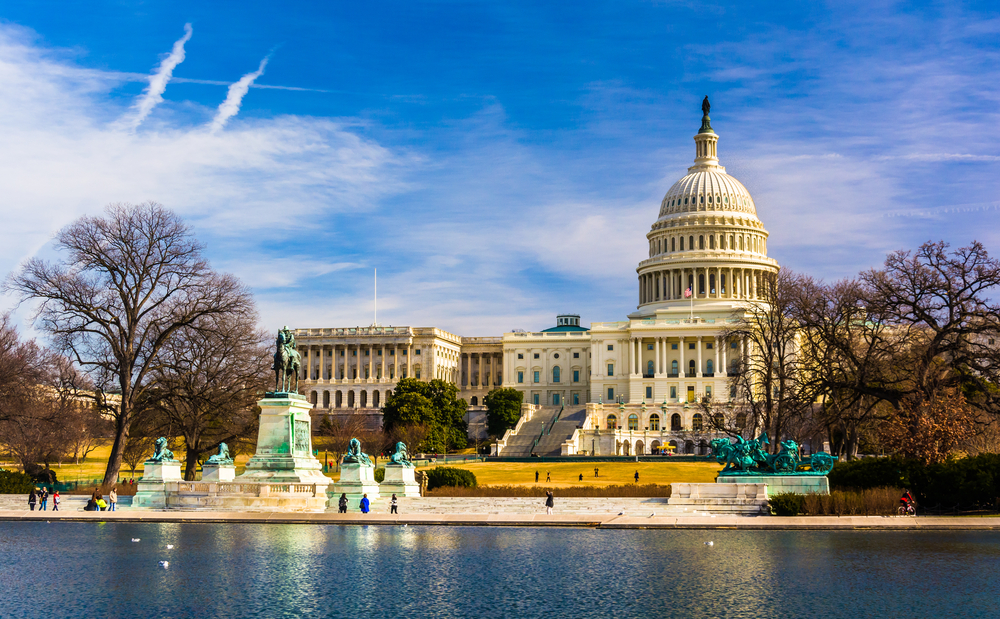When the first session of the 118th Congress ended last month, lawmakers left undone controversial and pressing business that will make January a difficult month. Pending are government funding, international aid, and expiring law issues on which there is as yet little or no consensus. Caught in the crosshairs are a tax package with provisions of interest to NAIFA members, extension of the National Flood Insurance Program (NFIP), and proposals to defund regulatory initiatives like the fiduciary-only rule.
At the top of the list is the need to fund the government’s discretionary spending for fiscal year (FY) 2024. None of the 12 annual appropriations bills were enacted into law last year. Indeed, many had not even passed one or the other chamber of Congress. The House still must pass five of the bills—including the ones funding the Departments of Labor (DOL) and Health & Human Services (HHS). The Senate has passed only three appropriations bills. And the House and Senate differ significantly on those that have passed.
The appropriations process this month is rife with difficulty. First, there are the deadlines—four of the 12 bills must be enacted into law by January 19. The other eight face a February 2 deadline. That gives Congress and the President just two weeks to agree on, write, and enact all 12 government funding bills.
And to date, the only agreement is between House and Senate leaders on a topline spending level ($1.59 trillion, with $886.3 billion of that to go to defense and $772.7 billion going to discretionary non-defense spending). It is still unclear whether the House and Senate will accept this agreement. Further complicating the situation is the fact that the topline spending deal does not include an agreement on whether to include or exclude any policy riders, some of which are “poison pills” (and are likely to be pushed hard by their supporters) on such things as defunding federal spending on abortion-related issues, transgender care issues, and investigations into former President Trump and/or President Biden. There is also a raft of such policy riders (particularly in the House) on lower-profile issues, like one to defund work on the Department of Labor’s (DOL’s) fiduciary-only rule.
Finally, as if this situation isn’t time-sensitive and complicated enough, there is the question of whether to include generally supported add-on legislation, like the emerging $70 billion tax package (see story below on that), or the SECURE 2.0 technical corrections bill.
With the January 19 deadline fast approaching, Congressional leaders have agreed to proceed with a stopgap resolution (CR) with two dates, to accommodate the current “laddered” CR expiration dates. The date for the appropriation bills that would have expired Jan. 19 will be Mar.1; the date for those that would have expired Feb. 2 will be Mar. 8. It is unlikely that the House Freedom Caucus Republicans will support a CR. However, in the Senate, Majority Leader Schumer has moved forward and filed cloture on a shell bill to serve as a CR.
Prospects: It is very difficult to predict how Congress will resolve the government funding issue. Time is short, the path to consensus could be narrow, and the stakes are high. There is a very real risk of a government shutdown. And, further complicating the effort, there is the fact that current law would impose an across-the-board one percent cut in every agency’s budget (the cuts would take effect in April) if Congress funds the government via a continuing resolution (CR). If not modified, a CR would extend FY 2023 funding without any policy changes.
Government funding will likely preoccupy Congress for all of January and into February. There will almost certainly be high drama, bitter debate, and difficult choices. We will keep you posted as the situation plays out.
NAIFA Staff Contacts: Diane Boyle – Senior Vice President – Government Relations, at dboyle@naifa.org; or Jayne Fitzgerald – Director – Government Relations, at jfitzgerald@naifa.org; or Michael Hedge – Senior Director – Government Relations, at mhedge@naifa.org.






.png?width=600&height=90&name=Support%20IFAPAC%20%20(600%20%C3%97%2090%20px).png)
